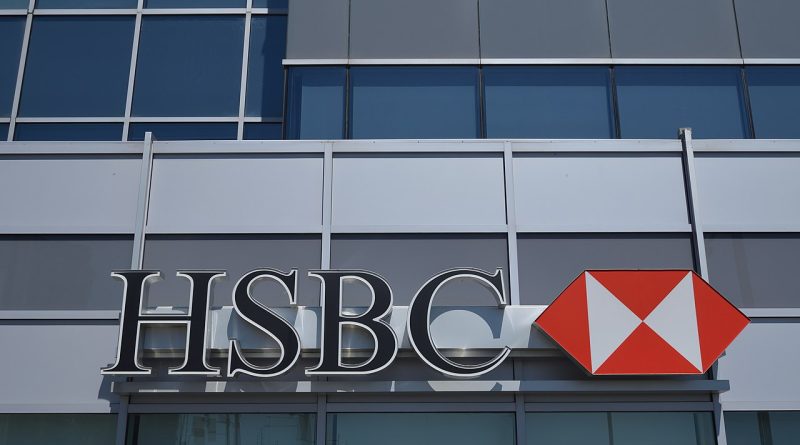The Collapse of the Barclay Family’s Logistics Empire
The recent collapse of the Barclay family logistics company has drawn significant attention, shedding light on the vulnerabilities within large corporate structures and the cascading effects on major financial institutions. HSBC, as a primary financier, faces a substantial financial setback with over £143 million in outstanding debts linked to the logistics group.
Background of the Barclay Family’s Business Ventures
The Barclay family, known for their diversified business interests, have long been influential players in various sectors, including logistics. Their journey began modestly with small enterprises before expanding into a logistics empire encompassing companies like Yodel and Arrow XL.
Frederick and David Barclay initially ventured into property and estate management, eventually leveraging their assets to invest in the logistics sector. Their business operations were characterized by a high degree of secrecy and strategic decision-making that often remained opaque to the public and regulators. Over the decades, the Barclays built a logistics conglomerate that became a significant player in the UK market, with key milestones marking their expansion and dominance.
The Collapse of the Logistics Company
The downfall of the Barclay family’s logistics company was precipitated by a combination of financial mismanagement, market volatility, and strategic errors. In early 2024, Logistics Group Limited, the parent company behind Arrow XL and previously Yodel, entered administration. The appointment of Teneo as administrators marked a critical juncture in the company’s downward spiral.
The trouble began to surface when the logistics group failed to manage its debts effectively, accruing over £150 million in liabilities. Despite efforts to restructure and stabilize operations, including the sale of Yodel in February 2024, the financial strain proved insurmountable. The administrators noted that the assets of the logistics group were insufficient to cover the secured debts, let alone the unsecured liabilities amounting to £18.3 million.
The immediate impact of the collapse was felt across various stakeholders, including employees, customers, and suppliers. The uncertainty surrounding the company’s future led to disruptions in service and heightened concerns about job security. The sale of Yodel and the subsequent administration of the logistics group highlighted the precarious position of many employees, who faced potential redundancies and a loss of livelihood.
HSBC’s Financial Exposure
HSBC’s financial exposure to the Barclay family’s logistics company underscores the significant risks associated with large-scale corporate financing. The bank’s involvement began with substantial loans intended to support the logistics group’s expansion and operational needs. However, as the company’s financial health deteriorated, HSBC found itself entangled in a complex web of debts and financial obligations.
The logistics group’s entry into administration revealed the extent of HSBC’s exposure, with £143 million in secured debts unlikely to be fully recovered. This situation has prompted HSBC to reassess its risk management strategies and consider potential write-offs to mitigate the financial impact. The bank’s broader financial health remains robust, but the incident highlights the vulnerabilities that even large financial institutions can face when corporate clients falter.
In response to the collapse, HSBC has initiated several strategic measures to manage the fallout. These include close collaboration with the administrators to maximize asset recovery and exploring legal avenues to mitigate losses. The bank is also reviewing its lending practices to enhance due diligence and risk assessment protocols, aiming to prevent similar occurrences in the future.
The collapse of the Barclay family’s logistics company has far-reaching implications for the logistics industry and beyond. The incident serves as a stark reminder of the financial fragility within the sector, exacerbated by economic pressures and regulatory challenges. Industry observers anticipate a potential shake-up, with increased scrutiny on corporate governance and financial transparency.
Regulatory bodies may impose stricter oversight to prevent similar collapses, while market participants will likely adopt more cautious approaches to expansion and debt management. For the Barclay family, the future remains uncertain. Their attempts to stabilize remaining business operations, such as Arrow XL, will be closely watched by stakeholders and industry analysts.
Looking ahead, the logistics industry must adapt to a rapidly changing environment characterized by technological advancements and evolving market demands. Companies will need to demonstrate strategic foresight, embracing innovation and operational efficiency to remain competitive. The collapse of the Barclay family’s logistics empire serves as a critical case study in the importance of financial prudence and strategic agility in navigating turbulent market conditions.
As the dust settles, the industry at large will continue to monitor the developments surrounding the Barclay family’s business ventures and the broader impact on the logistics landscape. The lessons learned from this episode will shape future strategies and policies, ensuring a more resilient and sustainable industry.
Sources:
- City A.M.
- Evening Standard
- Business Lancashire
